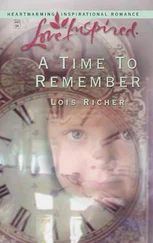Alexander Todd - A Time to Remember
Здесь есть возможность читать онлайн «Alexander Todd - A Time to Remember» весь текст электронной книги совершенно бесплатно (целиком полную версию без сокращений). В некоторых случаях можно слушать аудио, скачать через торрент в формате fb2 и присутствует краткое содержание. Город: Cambridge, Год выпуска: 1983, ISBN: 1983, Издательство: Cambridge University Press, Жанр: Химия, Биографии и Мемуары, на английском языке. Описание произведения, (предисловие) а так же отзывы посетителей доступны на портале библиотеки ЛибКат.
- Название:A Time to Remember
- Автор:
- Издательство:Cambridge University Press
- Жанр:
- Год:1983
- Город:Cambridge
- ISBN:0 521 25593 7
- Рейтинг книги:3 / 5. Голосов: 1
-
Избранное:Добавить в избранное
- Отзывы:
-
Ваша оценка:
- 60
- 1
- 2
- 3
- 4
- 5
A Time to Remember: краткое содержание, описание и аннотация
Предлагаем к чтению аннотацию, описание, краткое содержание или предисловие (зависит от того, что написал сам автор книги «A Time to Remember»). Если вы не нашли необходимую информацию о книге — напишите в комментариях, мы постараемся отыскать её.
A Time to Remember — читать онлайн бесплатно полную книгу (весь текст) целиком
Ниже представлен текст книги, разбитый по страницам. Система сохранения места последней прочитанной страницы, позволяет с удобством читать онлайн бесплатно книгу «A Time to Remember», без необходимости каждый раз заново искать на чём Вы остановились. Поставьте закладку, и сможете в любой момент перейти на страницу, на которой закончили чтение.
Интервал:
Закладка:
In opting for mineralogy I chose better than I knew. It turned out that Nacken, the professor in Frankfurt, was a great admirer of Gregory, the geologist in Glasgow, and seemed to consider any pupil of Gregory as a positive asset to his department. Accordingly Morrison and I were welcomed with open arms and our pathway through the subject was made very easy; Bertie Blount also benefited from this for, although he knew no mineralogy at all, it was assumed that, since he came with me to be interviewed, he too must be a Gregory pupil!
I was much impressed by the oral examination for the doctorate which, especially in the principal subject, was quite searching. The technique - which was customary and did not apply simply to my case - was to ask a question of the candidate and see whether from his opening reply he really knew something about the topic at issue. If he did, the examiner passed rapidly to another topic; if not, the candidate was subjected to more probing so that his knowledge or lack of it could be ascertained. In this way it was possible to cover a very great amount of ground in the course of an hour and an experienced examiner could find out much more than he could have done by means of written papers. One is often told how students in German universities tended to wander from one university to another during their courses. This may well have been true in some places, but it did not seem to be the case in Frankfurt save in the following special circumstances. It was generally held that, if it became clear to you that you were likely to fail in your examination, the proper thing to do was to transfer to the University of Giessen for your last semester; this was in fact done from time to time by the weaker vessels.
Looking back now, my recollection is that my life as a student in Frankfurt was a very happy one. No doubt matters were helped by the fact that, having apparently a certain facility for languages, I acquired fluency in German rapidly and so was able to get to know people much better than would otherwise have been possible. The student body was pretty cosmopolitan comprising, as it did, many impoverished young men from Eastern European countries belonging to the old Austro-Hungarian Empire, with a sprinkling of Russians, both emigres and Soviet engineering students, Persians and other Middle Easterners with a few Americans but, as far as I could ascertain, no British students other than ourselves. Frankfurt had taken over the colours and traditions of the German University of Strassburg including its student corporations, although it still retained its designation 'Preussiche Staats-Universitat zu Frankfurt a.M.' So it was that, although duelling was illegal, Frankfurt, in my day, still had several of the old fighting corporations. My friend Morrison had rooms in the same house as one Otto Lochel, president of one of these, the 'Freie Landsmannschaft Franco-Saxonia', and we became quite friendly with him. In due course we were admitted as honorary ' Freie Landsmanner' and used to attend from time to time the weekly Kneipe or club meeting complete with our song books and ribbons all in the orange and silver colours of the Landsmannschaft. These meetings were devoted mainly to singing and beer drinking and were relatively peaceful, although I recall on one occasion there was a row over some girl which led to a sabre duel. Duelling occurred at rather infrequent intervals and was usually the traditional 'Mensur' in which the contestants' sole object was to give one another a few facial scars. I did attend one of these events. It was held at 5 a.m. in the yard of an inn in Sachsenhausen, round which we had a series of scouts posted on the look-out for police. This particular 'Mensur' had been arranged with the Darmstadt branch of the Franco-Saxonia which had sent up two or three of their latest recruits (Fuchse), all of them freshmen at the Technische Hochschule, to swap scars with our recruits. It was a curious performance - almost a ritual - each duel being stopped by the attendant doctor as soon as a suitable face wound had been inflicted. At the end of it all we repaired to the inn and despite the early hour consumed vast quantities of beer before returning to Frankfurt. Nevertheless, contacts such as these with 'Korpstudenten' from the various corporations put me much more in touch with the student body than would otherwise have been possible. Most of the students I knew were right wing in their political stance although few of them were extreme. For the most part they sympathised with the democratic National Party; it was only later as the Weimar Republic finally began to collapse that they moved over mainly to the National Socialist Party. Franco-Saxonia apart, we lived the normal student life. In those days Frankfurt was an attractive city with its spacious west end and its dignified central area within the Anlagen: south towards the river lay the beautiful Altstadt with its Weinstuben which we used to frequent when we were feeling moderately affluent. Alas, all that has gone since the Second World War, and the Frankfurt I knew has been replaced by a rather featureless modern city with hardly any of its old character.
The period from 1929 to 1931 was an interesting time to be in Germany. It began with the winding up of the Allied occupation - I remember celebrating the departure of the French from Mainz with my student friends - and ended with a financial crisis involving, in Frankfurt at least, a run on the banks. During these two years, even I was aware that the Republic was crumbling, and there was widespread and growing economic distress. It seemed that government neither could nor would do anything and, hand in hand with growing disillusion and cynicism about parliamentary democracy, the extreme parties - National Socialists and Communists - began rapidly to make ground. After a good deal of violence on the streets, the Nazis gained the upper hand, the middle ground of politics fell away, and most of the public, including the student body, gradually moved over to them. This was not because they had any real sympathy for the extreme anti-Semitism of the Nazis; anti-Semitism in a mild form was, and I imagine always had been, widespread in Frankfurt but, alas, none of the men I knew really took the Nazi fulminations seriously. What the happenings during those years taught me was that economic troubles coupled with weak and vacillating government leave the way to totalitarianism wide open; all that is needed to complete the disaster is the appearance of a brilliant demagogue such as Adolf Hitler undoubtedly was. And it could happen in any country.
When I went to Germany I had no clear ideas about a career except that I wanted to do research in the natural product field, but soon it was time to think about what to do after completing the doctorate. Clearly I wanted to go back to Britain sometime but not necessarily at once. Bertie Blount was of similar mind and we did make an abortive attempt to go to Moscow to work for a spell with Zelinsky; it was probably well for both of us that it failed, for by all accounts life was pretty hard for students in the Soviet Union at that time. Blount had also been pressing me to go to Oxford with him and, since in 1930 Robert Robinson had succeeded W. H. Perkin Jr there, I decided to do so provided I could find the necessary financial support. During my short period in Glasgow in the spring of 1931 (when I did a little work on hesperidin) at the suggestion of Professor T. S. Patterson I applied for an 1851 Exhibition Senior Studentship. Entries for this had to go through one's own university, which then nominated its chosen candidates to go forward for the main competition. I remember well a somewhat discouraging interview with the Registrar of Glasgow University who said he would forward my application but that nothing would come of it since Glasgow hadn't figured in the award list for many years, and, moreover, there was an applicant in another subject who was much senior to me and would be the university's first choice. However, somewhat to my surprise, I was in fact awarded a Senior Studentship and I thereupon made arrangements to join Oriel College and start research with Robert Robinson in September 1931 on the synthesis of anthocyanins (the red and blue colouring matters of flowers). Although by that time I already held the German Dr. phil. nat., it eased the problem of entering a college if one read for a degree; since the D.Phil. course at Oxford had only a research requirement and was unlikely to influence adversely any work I intended to do, I enrolled accordingly and, indeed, took the degree in 1933.
Читать дальшеИнтервал:
Закладка:
Похожие книги на «A Time to Remember»
Представляем Вашему вниманию похожие книги на «A Time to Remember» списком для выбора. Мы отобрали схожую по названию и смыслу литературу в надежде предоставить читателям больше вариантов отыскать новые, интересные, ещё непрочитанные произведения.
Обсуждение, отзывы о книге «A Time to Remember» и просто собственные мнения читателей. Оставьте ваши комментарии, напишите, что Вы думаете о произведении, его смысле или главных героях. Укажите что конкретно понравилось, а что нет, и почему Вы так считаете.










